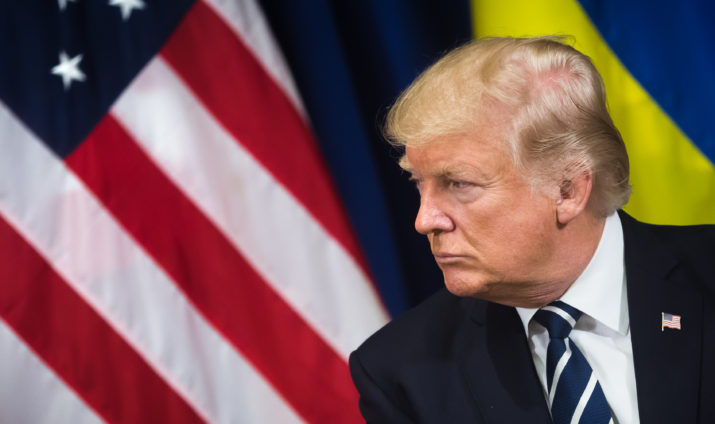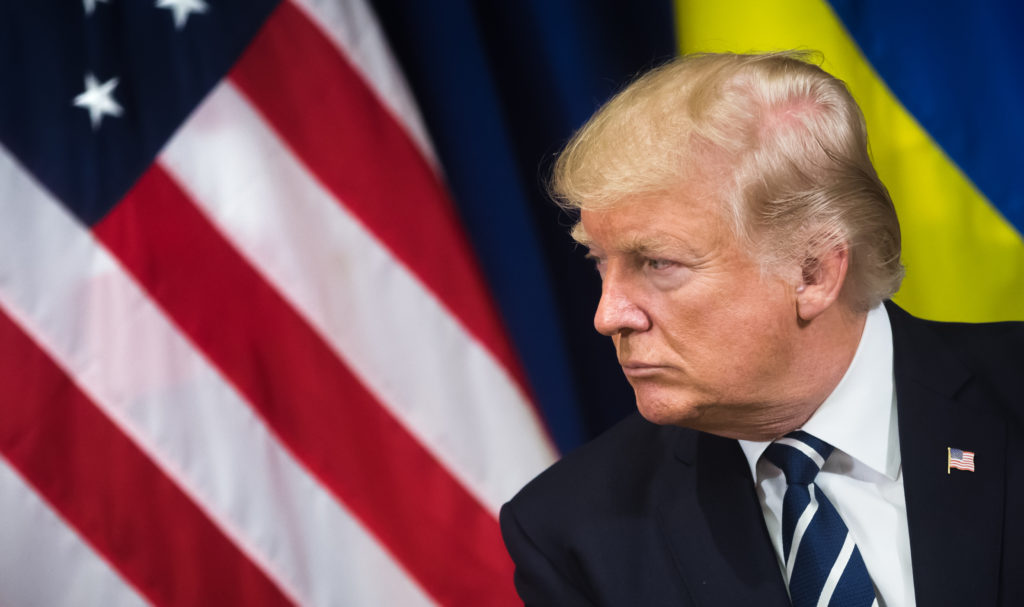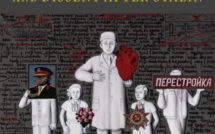

German author Esther Dischereit is currently residing in the United States. This is the first in a series of three letters in which she describes the mood in the country under President Trump.
Translated from the German by Linda Frazee Baker.
A man on West 14th Street in Manhattan is handing out free phone cards. A small line has formed of those in need of cards. The neighborhood association has done all it can to convince the well-off residents to accept that a homeless shelter for men should be opened here soon. A woman on the eighth floor supports the shelter. She lived for a long time in Queens, the part of the city to which, little by little, people are now beginning to move because Brooklyn has become too expensive.
At long last, Donald Trump delivered the State of the Union address. All the women representatives from the Democratic Party wore white, symbolically honoring the suffragettes. Debra Haaland is one of them too—the first woman in the row of Native Americans in Congress. Nancy Pelosi had disinvited the President because he had plunged the 800,000 employees of the federal government into a “shutdown.” In the most real sense of the word, the government became unable to function because the President was unwilling to give up his desire to build a wall along the border with Mexico, even though the funding for the wall could not be passed in the budget. People weren’t paid their wages. Those who receive food as social support in the form of food stamps went without them for fifty days. In the airports, passengers said to the few federal officials who were there, “Thank you for having come to work.” Small business people were also affected—those whose livelihood comes from having federal workers as customers. They have to put up with their losses.
Joanna didn’t listen to the President’s speech. She didn’t expect anything from it. On the contrary: he explained yet again that the situation on the border with Mexico was a crisis, which was certainly true now that he had forced those seeking asylum to camp out in unspeakable circumstances on the other side of the border. To wait for an undefined period of time. This act made the American law on asylum completely null and void. It was the same answer the country gave long ago when it turned Jewish refugees away.
“In the Name of Humanity, this government must fall.” Someone distributed a flyer with these words during the long Night of Philosophy and Ideas, a 24-hour long event at the Brooklyn Library. Thousands took part. A march to Trump Tower was announced. The next day there was nothing in the media. One could not even learn that that many people had supported this NO although many did. At the same time, during a week of bitter cold weather, 1,650 prisoners in New York sat in their cells without heat, without hot water or warm food. There were demonstrations outside and people came to the site to protest and said that such conditions should not happen. Lawyers filed suit on the grounds that fundamental rights were being denied. Not only here was the situation catastrophic.
Elizabeth has almost finished her degree in International Relations. She had an interview for the Foreign Service on Saturday that lasted all day. Is that her President? She rolled her eyes; she doesn’t believe that impeachment proceedings could succeed. With permanently curled eyelashes and make-up she sits at the reception desk of one of the academic departments of New York University.
In the elevator some women who have just come from physical training on 13th Street are talking about Mueller. Robert Mueller, the Special Counsel who is investigating Russian influence on the presidential election of 2016. They don’t believe that he can make a breakthrough against Trump. Annie says, “He’ll come up with something again so he gets away with it. For sure he’ll get off.” Joan has dyed her hair blond; the gray hairs have grown in again. Everything else about her is red: a red coat, red earmuffs, red gloves, red shoes. The elevator is cramped. What can anyone do? “Someone should … him.” Joan says it again, speaking loudly and with emphasis. “Yes,” she says, “but not me,” and “preferably Pence too. Yes, Pence at the same time.” Mike Pence, the Vice-President.
Lauren is waiting in Amorina, a café with an excellent display of gelatos. At sixty-nine, she has registered for a course at Columbia University. She lowers her voice. She hates the President, especially because he is a demagogue. National Public Radio has reported that the number of anti-Semitic and racist criminal offenses has risen dramatically.
On the way to the Hudson River along 14th Street, Madame Liberty, the statue of freedom, is displayed in light boxes composed of a crowd of individuals. “Democracy starts with you.”
Around the corner: Public Seminar, The New School for Social Research. The famous think tank during the Nazi era that today once more thinks of itself as a university in exile has published a postcard. Here, in black letters on a white background one reads: SHAME.
Esther Dischereit, described by her publisher, Suhrkamp Verlag, as “possibly the preeminent German-Jewish voice of the post-Shoah generation,” lives in Berlin. She has published fiction, poetry and essays, as well as plays for radio and the stage. She is the founder of the avant-garde-project WordMusic and has worked as a curator for various projects in contemporary art/new media. Most recently she published “Flowers for Otello. On the crimes which came out of Jena,” a book and performance-project where her topic is a series of killings against mostly Turkish immigrants which took place in Germany between 1998 and 2011. She served as Chair for Contemporary Poetics at NYU in 2019.
Linda Frazee Baker is a writer and literary translator living in New York. Her fiction and creative nonfiction have appeared in the Michigan Quarterly Review, Drunken Boat, Sakura Review, and Folio. Her translations of German literature have been published in The Guardian, WebConjunctions, Asymptote, Metamophoses, InTranslation, and the Brooklyn Rail. She holds a master’s in fiction from Johns Hopkins.
This article was originally published in German in Deutschlandfunk
Kultur on February 20, 2019 and has been slightly revised. It is reprinted
with the kind permission of Deutschlandfunk Kultur.
Published on April 26, 2019.
Photo: NEW YORK, USA President Trump | Shutterstock




